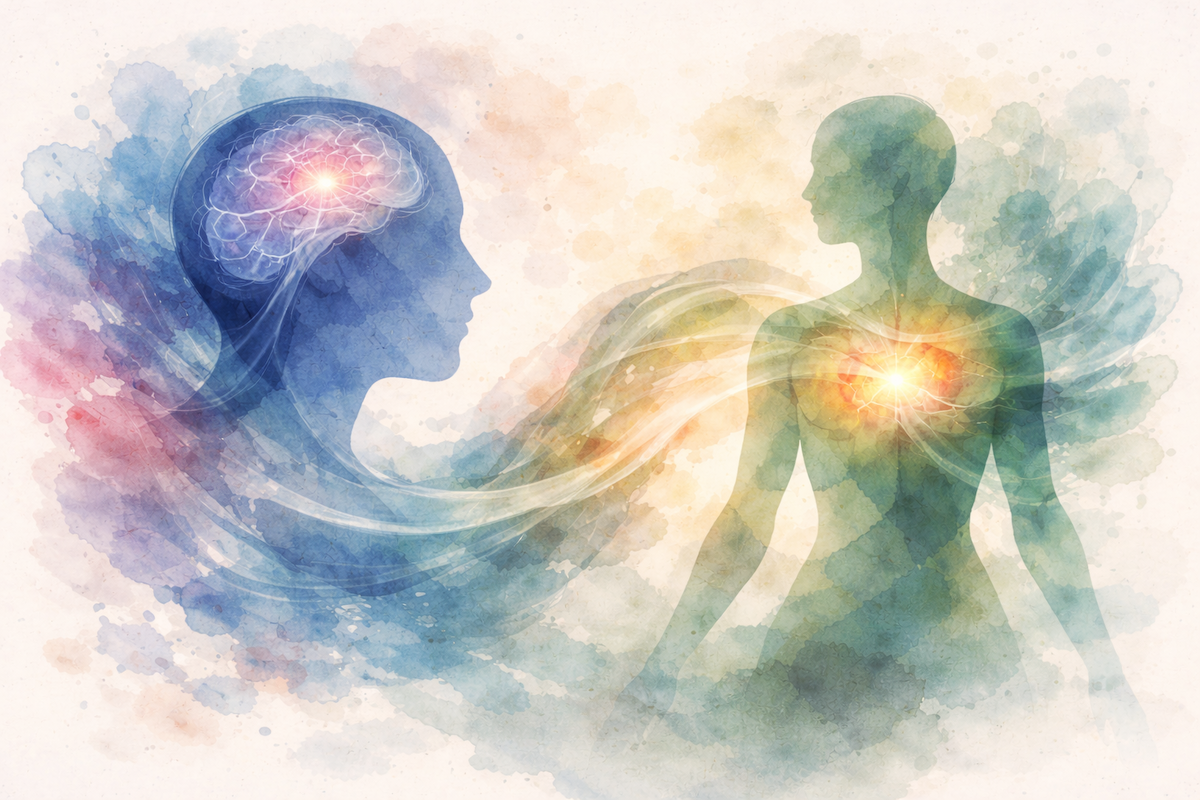What is Cognitive Behavioral Therapy?
Cognitive behavioral therapy (CBT) is a type of talk therapy. It focuses on the relationship between our thoughts, emotions, and behaviors. It recognizes that our thoughts influence our emotions, and in turn, our emotions impact our actions.
CBT helps individuals develop healthier coping strategies. It allows them to understand how to change their thoughts and behaviors. This enables them to break free from negative patterns. During sessions, clients work closely with a trained therapist who guides them through the process. Together, they will identify unhelpful thoughts and beliefs that may be contributing to their difficulties.
CBT equips clients with the following tools: challenging negative thoughts, setting achievable goals, and learning new skills. By using these techniques, they can navigate life’s challenges more effectively.
The 4 Goals of CBT
CBT primarily aims to alleviate distress and improve overall well-being by targeting specific challenges. Here are some common goals of CBT:
Identify and challenge negative thinking
CBT helps identify negative thought patterns, such as catastrophic and black-and-white thinking. Once these are identified, the negative thoughts can be challenged. Replacing negative thoughts with more realistic and balanced ones can reduce emotional distress.
Modify unhelpful behaviors
CBT assists in identifying behaviors that contribute to difficulties. Through behavioral experiments and gradual exposure, clients learn to replace harmful behaviors with healthier alternatives.
Develop healthy coping skills
CBT teaches practical strategies to cope with difficult situations. Clients learn problem-solving, relaxation exercises, and effective communication skills, enabling them to navigate life’s challenges more effectively.
Build resilience
CBT aims to enhance the ability to bounce back from setbacks. Individuals are better equipped to cope with stress, manage relationships, and maintain a positive outlook by developing resilience.
Benefits of CBT
CBT primarily aims to alleviate distress and improve overall well-being by targeting specific challenges. Here are some common goals of CBT:
Helps treat multiple conditions
CBT has been extensively researched and proven effective in treating various addictions and mental health conditions.
Collaborative and focused approach
CBT is a collaborative process between the client and their therapist. By actively participating in therapy, setting goals, and practicing new skills between sessions, one can achieve lasting positive changes.
Practical + time-limited
CBT is typically a short-term therapy, with sessions lasting about 12 to 20 weeks. Its structured nature and emphasis on practical strategies make it a time-efficient treatment option.
Build resilience
CBT encourages self-reflection and self-awareness. It helps clients to become more aware of their thoughts, emotions, and behaviors. This self-reflection helps to gain a deeper understanding of themselves and their patterns, leading to personal growth and positive change.
Common Addictions + Mental Health Disorders Treated with CBT
At STR, we offer a compassionate and effective approach to using CBT for a variety of mental health disorders and addictions. These include anxiety disorders, bipolar disorder, borderline personality disorder (BPD), depressive disorders, obsessive-compulsive disorder (OCD), post-traumatic stress disorder (PTSD), schizophrenia, and substance use disorders. Learn more below.
Anxiety disorders
CBT is an effective treatment for anxiety disorders. It addresses and challenges the thoughts and beliefs that lead to excessive worry and fear. This helps individuals manage their anxiety better.
Identifying triggers and developing coping strategies can help individuals control their anxiety. This can then lead to greater confidence when navigating daily life.
Bipolar disorder
CBT is beneficial for individuals with bipolar disorder. It helps them understand the emotional and behavioral changes linked to the condition. Furthermore, it provides them with the tools to manage those changes. CBT helps people stabilize their emotions and lessen the effects of manic and depressive episodes. It recognizes patterns, creates effective coping strategies, and encourages healthy habits.
Borderline personality disorder
CBT provides valuable tools for individuals with borderline personality disorder (BPD) to regulate emotions, manage impulsive behaviors, and improve interpersonal relationships. Through CBT, individuals can learn to challenge negative self-perceptions, develop healthier coping mechanisms, and enhance their overall emotional well-being.
Depressive disorders
CBT is an effective treatment option for individuals experiencing depressive disorders. CBT helps people break free from the cycle of negative thinking. It allows people to identify negative thought patterns and replace them with positive alternatives. This leads to a healthier perspective and a more positive outlook on life.
Obsessive-compulsive disorder
CBT is crucial in treating obsessive-compulsive disorder (OCD) by helping individuals challenge and modify their obsessive thoughts and compulsive behaviors. Exposure and response prevention techniques can help people reduce their anxious thoughts. These techniques can also help them form healthier ways to manage their symptoms.
Post-traumatic stress disorder
CBT is a recognized treatment for post-traumatic stress disorder (PTSD), helping individuals process traumatic experiences and alleviate associated symptoms. Distorted thinking patterns can be addressed.
Trauma-focused therapy can help reduce the impact of past trauma, manage triggers, and give individuals a sense of safety and well-being.
Schizophrenia
While CBT is not a primary treatment for schizophrenia, it can be used as an adjunctive therapy to address specific symptoms. CBT techniques can help individuals manage distressing thoughts, cope with hallucinations or delusions, and enhance overall functioning and quality of life.
Substance use disorder
CBT is widely used in addiction treatment to address the underlying causes and the associated behaviors. Individuals can overcome addiction and maintain long-term recovery by identifying triggers, developing relapse prevention strategies, and challenging distorted beliefs.
If you or someone you know is experiencing these symptoms, seek professional help to address the issues.
How is CBT used in addiction + mental health treatment?
CBT has proven particularly effective in the realms of addiction and mental health treatment. Here’s how it can be applied:
Mental Health Treatment
CBT is a cornerstone in the treatment of various mental health conditions. It helps individuals with anxiety disorders to identify and challenge anxious thoughts, while those with depression learn to counter negative thinking patterns. CBT is also effective in treating PTSD by assisting individuals in processing traumatic experiences and reducing associated symptoms. Additionally, it can be applied to address issues such as eating disorders, OCD, and phobias.
Addiction Treatment
CBT is used in addiction treatment to help individuals identify triggers, develop relapse prevention strategies, and challenge distorted beliefs surrounding substance use. CBT empowers individuals to overcome addiction and maintain long-term recovery by learning healthier coping skills and implementing positive changes.
CBT provides a practical and effective approach to addressing mental health conditions and addictions. Understanding the connection between our thoughts, feelings, and behaviors can transform lives and achieve lasting positive change. That being said, it is not the only piece of the puzzle. The best recovery plan is a comprehensive treatment plan that includes a wide range of treatment methods.
At STR Behavioral Health, we can help you explore how CBT can benefit you. You have the power to take control of your thoughts, emotions, and actions. Start your journey toward recovery now.


